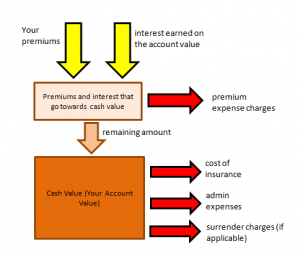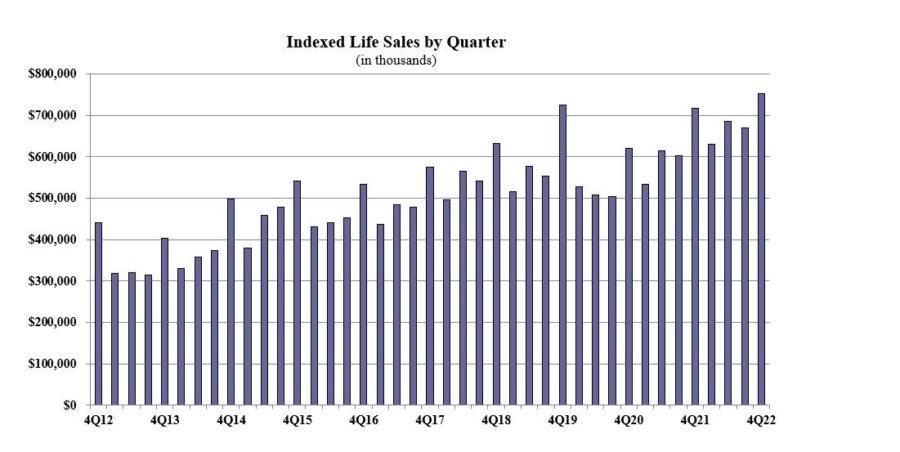All Categories
Featured
Table of Contents
1), typically in an attempt to defeat their classification averages. This is a straw guy argument, and one IUL folks like to make. Do they contrast the IUL to something like the Vanguard Total Amount Securities Market Fund Admiral Shares with no load, an expenditure proportion (ER) of 5 basis points, a turnover ratio of 4.3%, and a phenomenal tax-efficient document of distributions? No, they compare it to some awful proactively managed fund with an 8% load, a 2% ER, an 80% turn over proportion, and a terrible document of temporary capital gain circulations.
Common funds typically make annual taxable circulations to fund proprietors, also when the value of their fund has actually decreased in value. Shared funds not just need income reporting (and the resulting yearly taxation) when the shared fund is rising in worth, yet can likewise enforce income tax obligations in a year when the fund has actually gone down in value.
You can tax-manage the fund, gathering losses and gains in order to lessen taxed circulations to the investors, yet that isn't in some way going to transform the reported return of the fund. The possession of shared funds may call for the shared fund proprietor to pay estimated taxes (single premium universal life insurance pros cons).

IULs are simple to position so that, at the proprietor's death, the beneficiary is exempt to either earnings or inheritance tax. The same tax decrease techniques do not work nearly also with common funds. There are countless, usually costly, tax catches associated with the timed buying and marketing of common fund shares, traps that do not put on indexed life Insurance.
Chances aren't extremely high that you're going to be subject to the AMT due to your shared fund circulations if you aren't without them. The remainder of this one is half-truths at best. While it is true that there is no revenue tax obligation due to your successors when they inherit the proceeds of your IUL plan, it is likewise true that there is no revenue tax obligation due to your heirs when they acquire a common fund in a taxed account from you.
What Is Difference Between Whole Life And Universal Life Insurance
There are far better methods to prevent estate tax obligation concerns than purchasing investments with low returns. Shared funds might trigger revenue taxation of Social Safety and security benefits.

The development within the IUL is tax-deferred and might be taken as tax obligation cost-free income using lendings. The plan owner (vs. the mutual fund supervisor) is in control of his or her reportable revenue, thus enabling them to minimize and even get rid of the tax of their Social Safety and security advantages. This is fantastic.
Below's an additional very little problem. It's real if you purchase a shared fund for say $10 per share just prior to the distribution date, and it distributes a $0.50 distribution, you are after that going to owe taxes (probably 7-10 cents per share) although that you have not yet had any kind of gains.
In the end, it's truly concerning the after-tax return, not how much you pay in tax obligations. You are mosting likely to pay more in taxes by utilizing a taxable account than if you get life insurance policy. You're additionally most likely going to have even more cash after paying those taxes. The record-keeping needs for possessing mutual funds are significantly more complicated.
With an IUL, one's documents are kept by the insurer, copies of annual statements are sent by mail to the proprietor, and circulations (if any kind of) are completed and reported at year end. This is additionally kind of silly. Certainly you must maintain your tax obligation records in case of an audit.
Nationwide Iul
All you have to do is push the paper into your tax folder when it appears in the mail. Hardly a factor to purchase life insurance. It resembles this person has actually never ever bought a taxed account or something. Shared funds are typically component of a decedent's probated estate.
In addition, they go through the delays and costs of probate. The profits of the IUL policy, on the various other hand, is constantly a non-probate circulation that passes outside of probate directly to one's named beneficiaries, and is consequently exempt to one's posthumous creditors, undesirable public disclosure, or comparable delays and expenses.
Medicaid incompetency and life time income. An IUL can supply their proprietors with a stream of earnings for their entire life time, no matter of exactly how lengthy they live.

This is helpful when arranging one's affairs, and transforming properties to income prior to a retirement home arrest. Shared funds can not be converted in a similar way, and are often taken into consideration countable Medicaid possessions. This is another stupid one supporting that inadequate people (you understand, the ones who require Medicaid, a federal government program for the poor, to spend for their assisted living home) should utilize IUL as opposed to mutual funds.
Difference Between Whole Life And Iul
And life insurance looks dreadful when contrasted fairly versus a retirement account. Second, individuals who have money to buy IUL over and beyond their pension are going to have to be terrible at managing cash in order to ever before certify for Medicaid to spend for their assisted living home prices.
Persistent and incurable ailment cyclist. All plans will certainly permit an owner's very easy accessibility to cash money from their plan, typically forgoing any surrender fines when such individuals experience a major health problem, require at-home treatment, or come to be restricted to a retirement home. Mutual funds do not offer a similar waiver when contingent deferred sales fees still use to a shared fund account whose proprietor needs to market some shares to money the costs of such a stay.
Iul Insurance
You get to pay more for that advantage (cyclist) with an insurance plan. Indexed universal life insurance coverage supplies death advantages to the beneficiaries of the IUL owners, and neither the owner nor the beneficiary can ever before shed money due to a down market.
I certainly don't need one after I get to monetary freedom. Do I want one? On standard, a buyer of life insurance coverage pays for the true price of the life insurance advantage, plus the prices of the plan, plus the profits of the insurance firm.
Equity Indexed Universal Life Policy
I'm not totally certain why Mr. Morais tossed in the entire "you can't lose cash" once more right here as it was covered fairly well in # 1. He just desired to duplicate the very best marketing point for these things I mean. Once more, you don't lose small dollars, but you can shed real bucks, as well as face major opportunity price due to reduced returns.

An indexed universal life insurance coverage plan proprietor might trade their policy for a totally various policy without activating earnings tax obligations. A shared fund owner can stagnate funds from one shared fund company to one more without marketing his shares at the previous (thus triggering a taxed occasion), and redeeming brand-new shares at the last, commonly subject to sales fees at both.
While it is real that you can trade one insurance coverage policy for another, the reason that individuals do this is that the very first one is such a dreadful plan that also after purchasing a new one and experiencing the very early, unfavorable return years, you'll still appear in advance. If they were sold the appropriate policy the very first time, they should not have any need to ever exchange it and go through the very early, unfavorable return years once again.
Latest Posts
Nationwide Yourlife Indexed Ul Accumulator
Allstate Futuregrowth Iul
Nationwide Iul